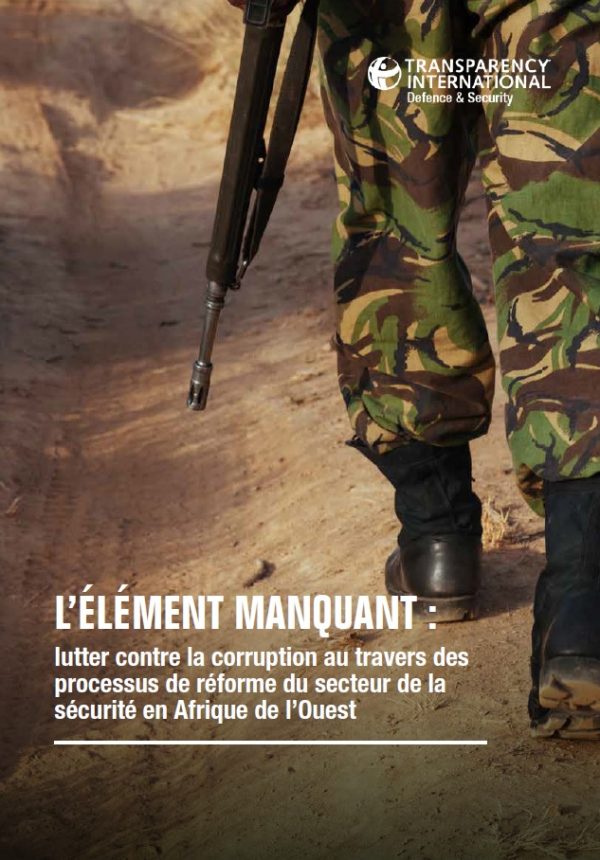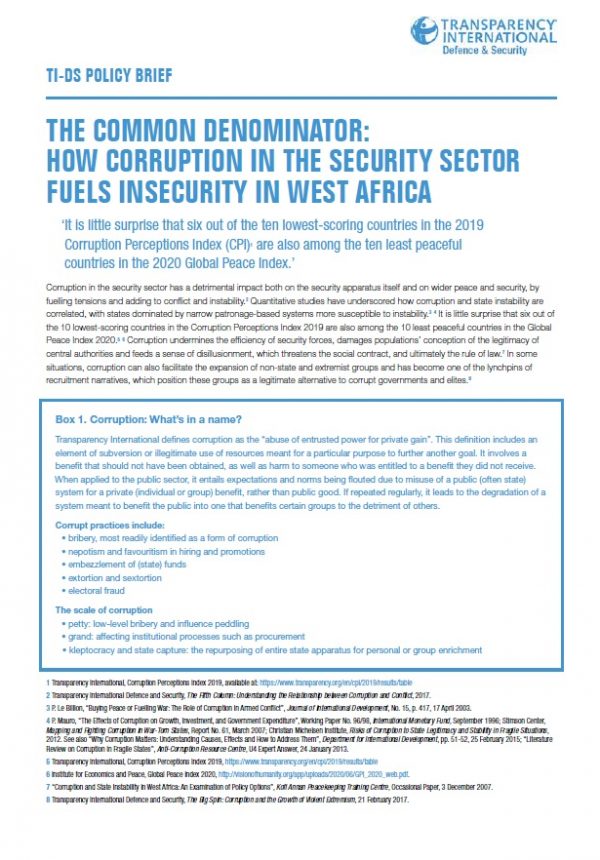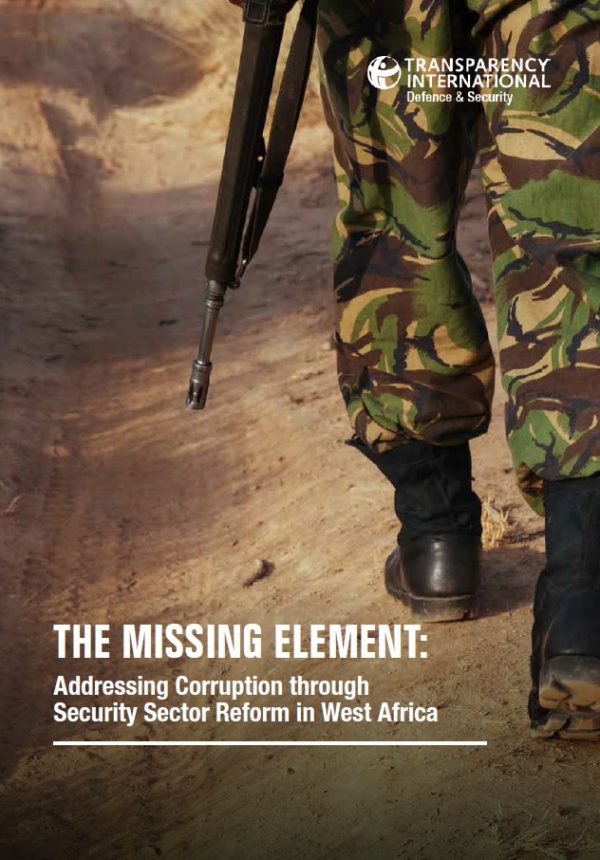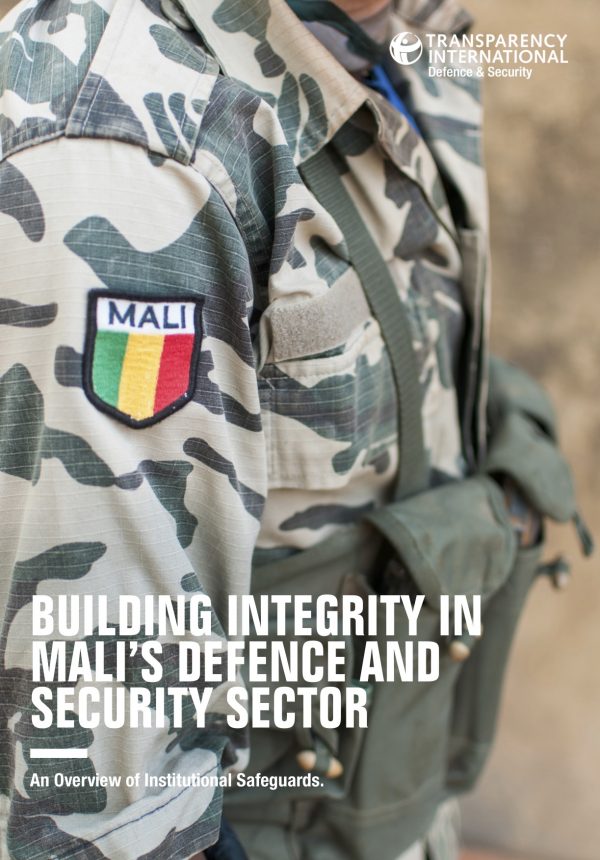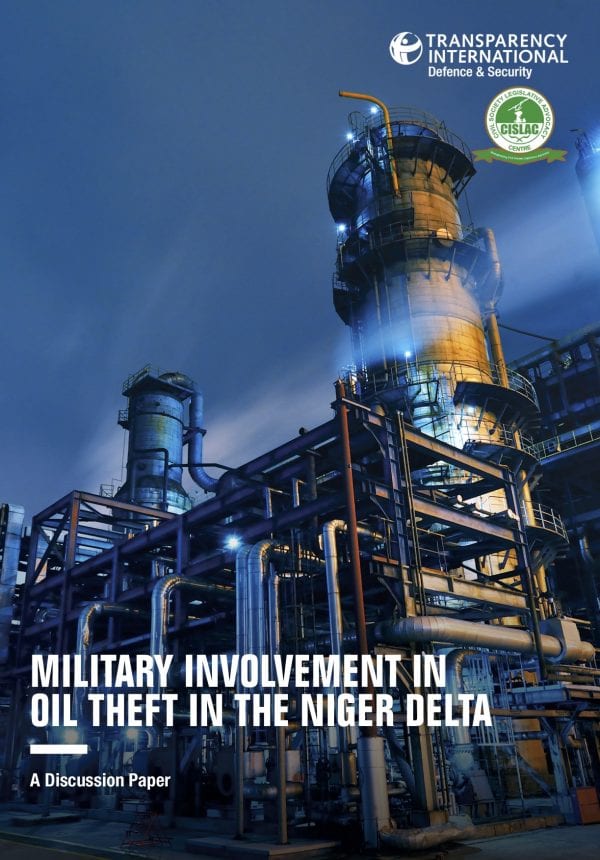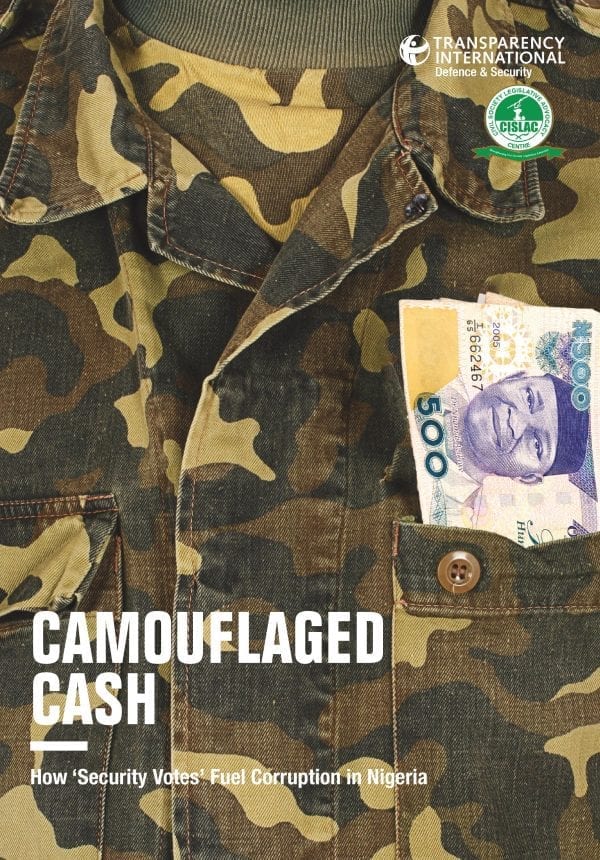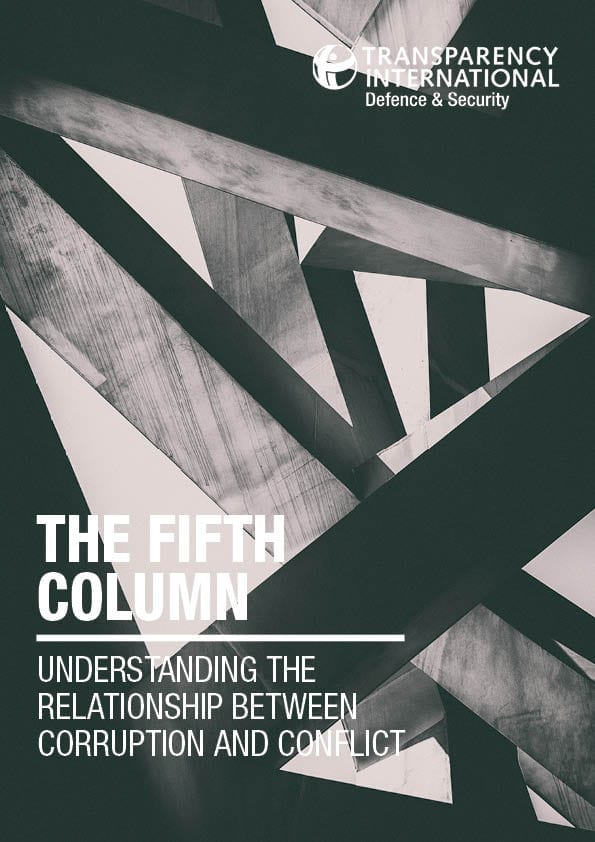The Missing Element: Addressing Corruption through Security Sector Reform in West Africa
For decades, stability in West Africa has been severely disrupted by internal conflicts, commonly financed by the illegal sale of arms or the illicit extraction of natural resources. From Liberia, Sierra Leone and Côte d’Ivoire, to Mali, Burkina Faso and Nigeria, corruption has often underpinned these conflicts and is the basis for grievances against political leaders and violent political change.
By eroding public trust and undermining the efficiency of defence and security institutions, corruption has undermined the rule of law and contributed to sustained instability. In practice, this has resulted in weaker access to basic services for many and has contributed to the creation of environments conducive to human rights violations.
This report argues that, given the significant threat that corruption presents to peace and stability in West Africa, a greater focus should be placed on anti-corruption work within security sector reform and governance (SSR/G). It analyses the nexus between corruption and conflict in West Africa against the prevalence of anti-corruption efforts in normative SSR frameworks, commonly used in West Africa, and in a sample of countries undertaking SSR/G.
Through this framework, our research reveals the neglect of anti-corruption efforts, to the benefit of more technical “train-and-equip” approaches. As a result, this leaves underlying structures untouched and corrupt networks undisturbed, and represents a missed opportunity to harness the capacities of SSR/G to lead to transformative change.
Download Publication as PDF
